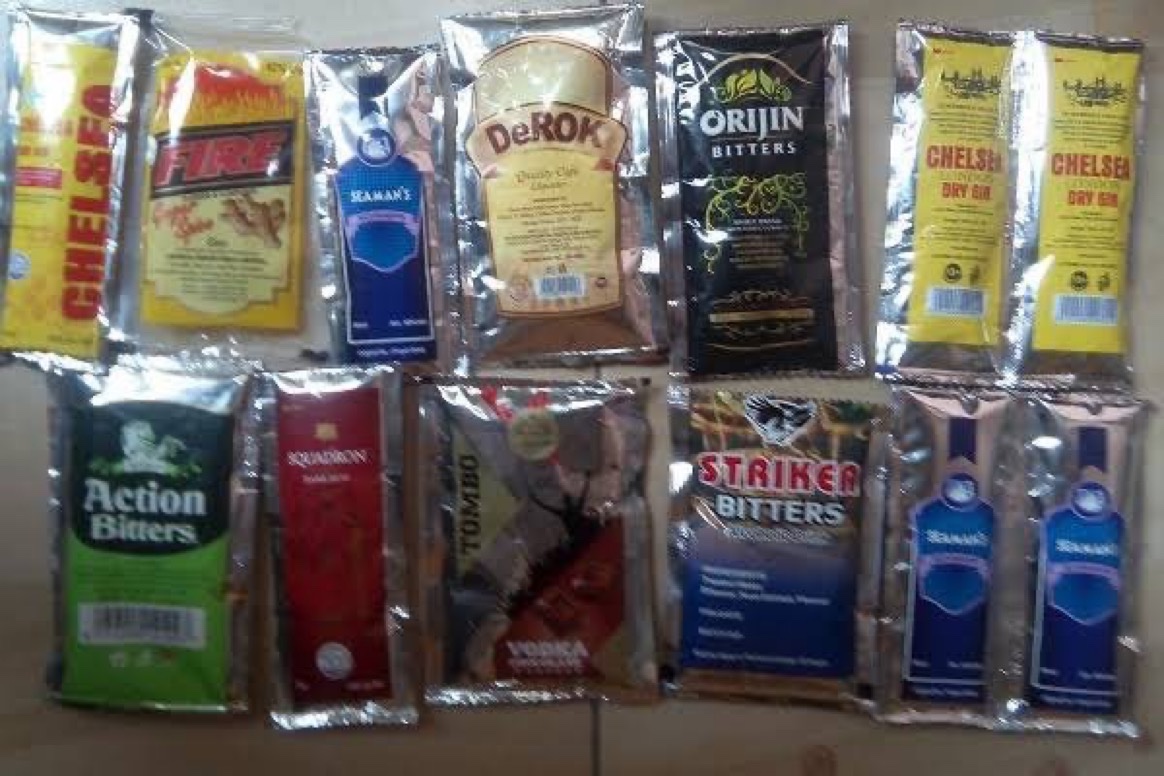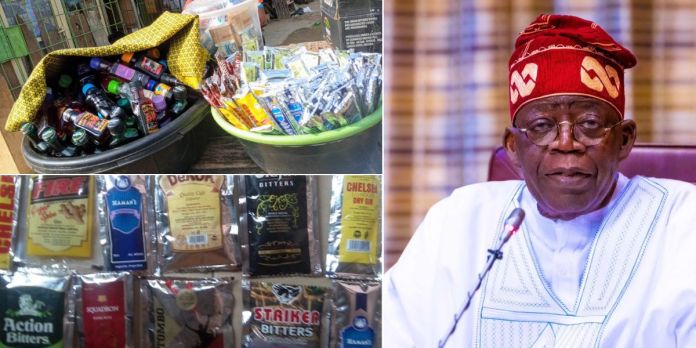The Federal Government has taken a significant step by enforcing the ban on the importation, manufacture, distribution, sale, and use of alcoholic beverages in sachets, PET, and glass bottles of 200 ml and below. This directive was highlighted by Professor Mojisola Adeyeye, the Director-General of the National Agency for Food and Drug Administration and Control (NAFDAC), during a press conference held in Abuja on Monday.
The agency emphasized that the deadline given to manufacturers of these products to cease production in sachets and PET bottles ended on January 31, 2024. As of this date, no alcoholic beverages falling within these categories are registered by NAFDAC. Enforcement actions to ensure compliance with this policy commenced nationwide on February 1, 2024.
Professor Adeyeye expressed concern over the non-compliance with Nigerian laws regarding this matter and emphasized that NAFDAC would employ all necessary means, including prosecution, to address the issue. She urged holders of alcohol in sachets, PET, and glass bottles, as well as related packaging materials, to surrender them to NAFDAC’s Investigation and Enforcement Directorate for destruction to avoid sterner measures.

The decision to enforce the ban was reached following recommendations from a high-powered committee consisting of the Federal Ministry of Health, NAFDAC, and other relevant agencies. This decision, made in December 2018, involved consultations with stakeholders from the industry, including the Association of Food, Beverages and Tobacco Employers (AFBTE) and the Distillers and Blenders Association of Nigeria (DIBAN).
The move is aimed at safeguarding the well-being of under-aged individuals and the general populace. Statistics from the World Health Organization underline the risks associated with the consumption of alcohol by children, including its link to various health conditions and social issues like alcohol addiction and gender-based violence.
To address alcohol abuse effectively, the World Health Organization recommends policy actions such as regulating alcohol marketing, particularly to younger demographics, and controlling its availability. These strategies have proven to be effective and cost-effective in combating the negative impacts of alcohol consumption on society.


